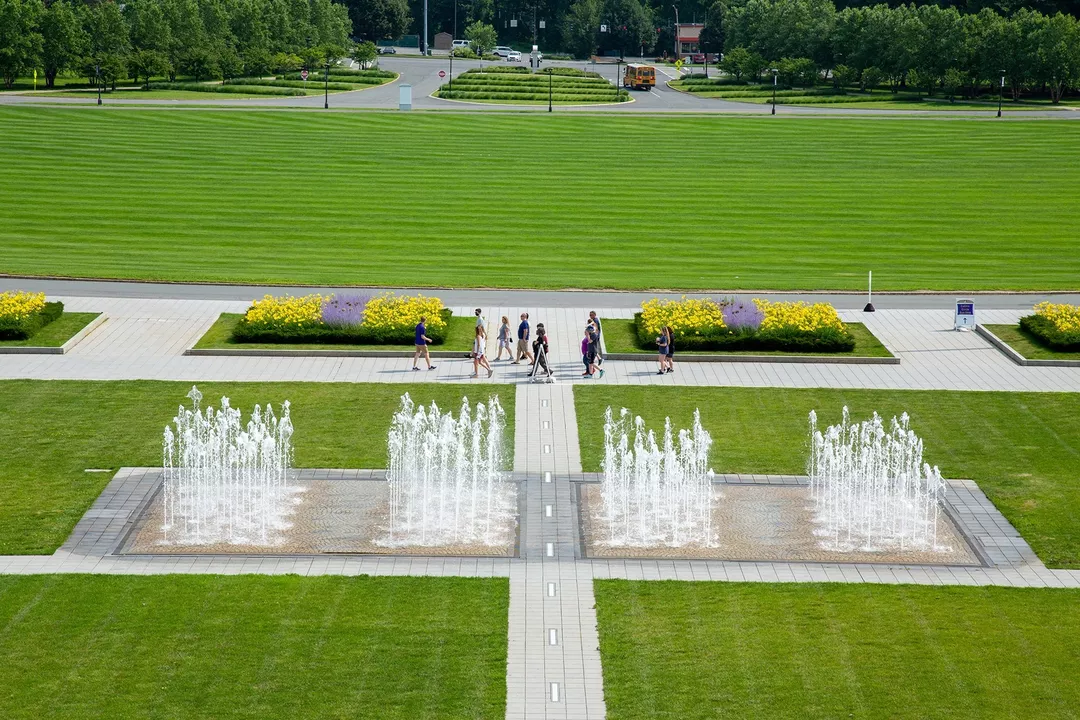-
hello@abroadcube.com
Mail us
-
Call For Help:
98779 83783
-
Whatsapp Us
70090 34921
Explore the microscopic world with in-depth theoretical and practical expertise. Students will become proficient in modern theory, tools and chemical principles through robust coursework and real-world application with a master’s degree in chemistry from the University at Albany.
Through a research-focused curriculum students will gain the skills to pursue a career as a scientist in areas like pharmaceuticals, biotechnology, agriculture, forensics and government.
Students will focus their graduate education in a specialization that interests them, whether forensic/analytical, biophysical/biochemical, organic/medicinal, inorganic/materials or structural/computational chemistry. Students will gain insight into concepts like the mathematical and physical underpinnings of the discipline, as well as gather classical and statistical knowledge.
Students will cover fundamental concepts in courses like Inorganic Chemistry, Advanced Physical Chemistry and Theory and Techniques of Biophysics and Biophysical Chemistry before moving onto courses concentrated in their stated specialization. Become highly competent in conducting research through survey and experimentation methodologies featured throughout the course sequence.
The master's degree requires a supervised field examination and culminates in an intensive, hands-on mentored research thesis.
| Level | Masters |
| Discipline | Chemistry |
| Duration | 12 months |
| Intakes | Jan, Aug |
| Application Fees | USD 75 |
| Tuition Fees | USD 23100 |
| Campus | Albany |
| Language proficiency (minimum) | |
| IELTS | 6.5 |
|---|---|
| TOEFL | 79 |
| PTE | 53 |
| Duolingo | 110 |
| Exam proficiency (minimum) | |
| SAT | Not Required / Waiver |
|---|---|
| ACT | Not Required / Waiver |
| GRE | Not Required / Waiver |
| GMAT | Not Required / Waiver |
Minimum GPA - 77.0%
QS Quacquarelli Symonds is the world’s leading provider of services, analytics, and insight to the global higher education sector, whose mission is to enable motivated people anywhere in the world to fulfil their potential through educational achievement, international mobility, and career development.
THE (Times Higher Education) has been providing trusted performance data on universities for students and their families, academics, university leaders, governments and industry, since 2004. We create university rankings to assess university performance on the global stage and to provide a resource for readers to understand the different missions and successes of higher education institutions.
The Academic Ranking of World Universities (ARWU) was first published in June 2003 by the Center for World-Class Universities (CWCU), Graduate School of Education (formerly the Institute of Higher Education) of Shanghai Jiao Tong University, China, and updated on an annual basis
The "Webometrics Ranking of World Universities" is an initiative of the Cybermetrics Lab, a research group belonging to the Consejo Superior de Investigaciones Científicas (CSIC), the largest public research body in Spain. CSIC is among the first basic research organizations in Europe. The CSIC consisted in 2006 of 126 centers and institutes distributed throughout Spain.


